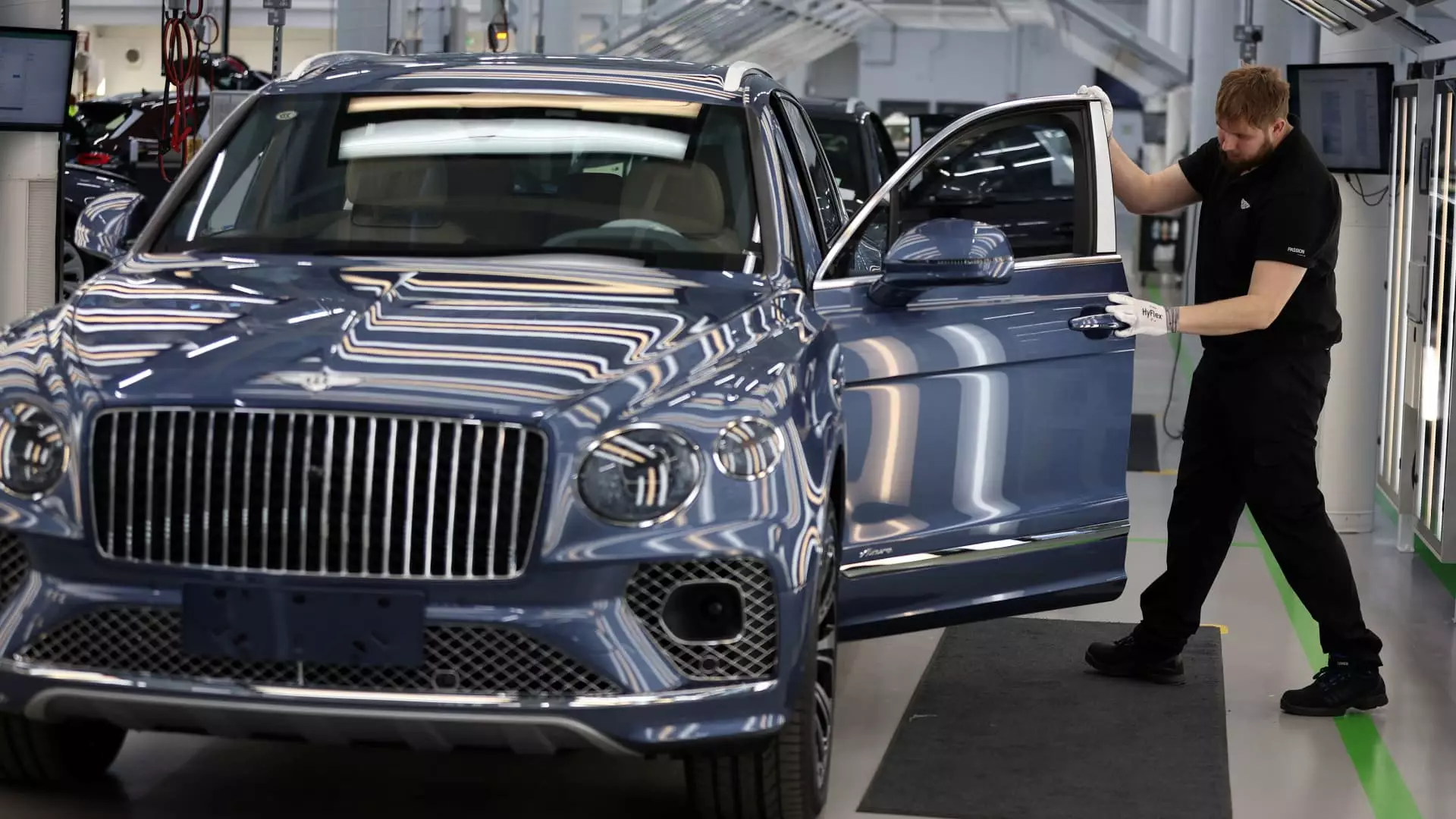Bentley Motors, renowned for its opulent performance cars, faces significant challenges as it reconsiders its commitment to exclusively producing electric vehicles (EVs). Originally set to phase out internal combustion engines by 2030, the company has now adjusted its timeline, announcing plans to persist with plug-in hybrid electric vehicles (PHEVs) until at least 2035. This strategic pivot highlights the complexities of consumer demand, market competition, and evolving legislation that the luxury automaker must navigate in order to thrive in a rapidly changing automotive environment.
Frank-Steffen Walliser, the chairman and CEO of Bentley, candidly acknowledged a crucial factor influencing the company’s decision: the lack of demand for fully electric vehicles among existing clientele. While legislation is indeed a driving force behind the automotive industry’s electrification, Walliser emphasized that genuine customer interest must also play a pivotal role in shaping Bentley’s offerings. The challenge is acute; Bentley’s traditional customer base is accustomed to vehicles with impressive combustion engines, and the transition to electric alternatives may not resonate with their preferences.
This sentiment echoes across the luxury automotive sector, where established brands grapple with the feasibility of shifting from their high-performance roots to the relatively nascent electric vehicle market. The clear disconnect between legislation pushing for sustainability and consumer appetite for traditional powertrains presents a multifaceted conundrum for manufacturers like Bentley.
In light of these challenges, Bentley has rebranded its long-term strategic vision from “Beyond100” to “Beyond100+,” signaling a need to adapt to the present realities of the market. This name change underscores not only an extension of their roadmap but also a philosophical commitment to embracing a broader spectrum of vehicle offerings that includes PHEVs and potentially traditional combustion engines for the foreseeable future.
The recalibrated strategy envisions an annual introduction of new EVs or PHEVs leading up to 2035, with the inaugural electric offering—a luxury urban SUV—set to debut in 2026. This timing reflects a balance between reacting to market conditions and pursuing ambitious goals, projecting an image of a company in tune with consumer needs while remaining mindful of legislative pressures.
Previous leadership, particularly former CEO Adrian Hallmark, cited software and architectural challenges as key contributors to the delays in Bentley’s electric vehicle program. This admission raises questions about the automaker’s readiness to evolve technologically as part of its transition. The delay illustrates a significant intersection between innovation and the luxury market’s stringent standards—a dilemma that requires Bentley to invest not only in new designs but in building the necessary technological backbone to support them.
With Walliser now at the helm, Bentley is tasked with overcoming these developmental obstacles to align its luxury ethos with modern electric vehicle standards. The first upcoming EV is expected to be smaller than the Bentayga SUV, representing a shift towards compact design tailored for urban landscapes. This pivot signifies an attempt to attract a new generation of consumers who value both luxury and sustainability.
As Bentley Motors charts its course into an electrified future, the interplay of market demand, legislative pressures, and technological innovation will shape its trajectory. The luxury automaker’s journey is emblematic of a broader trend within the automotive industry, where adaptation and responsiveness are paramount to survival in an era marked by unprecedented change. By embracing a diversified approach—balancing PHEVs and traditional vehicles with planned electric offerings—Bentley seeks to maintain its legacy while appealing to an emerging demographic of environmentally conscious luxury consumers. Only time will tell if this strategy will position Bentley as a leader in the next chapter of automotive history, or if it will falter amidst the challenges of a rapidly evolving landscape.


Leave a Reply